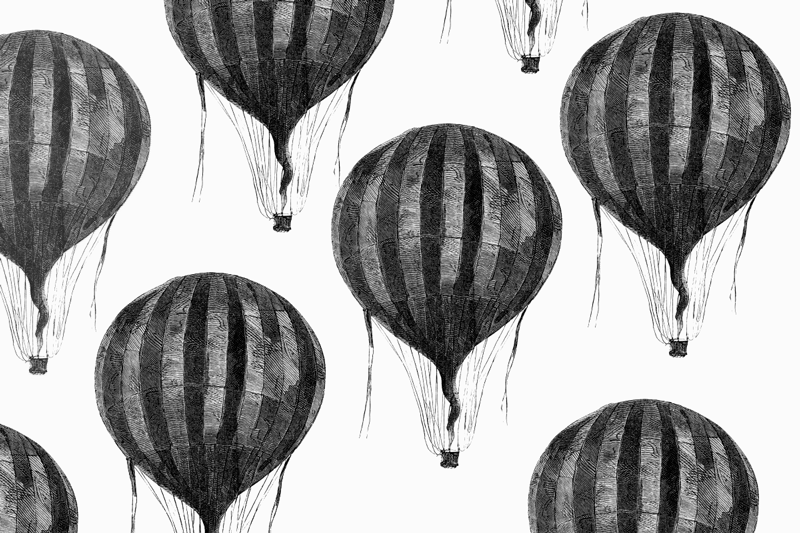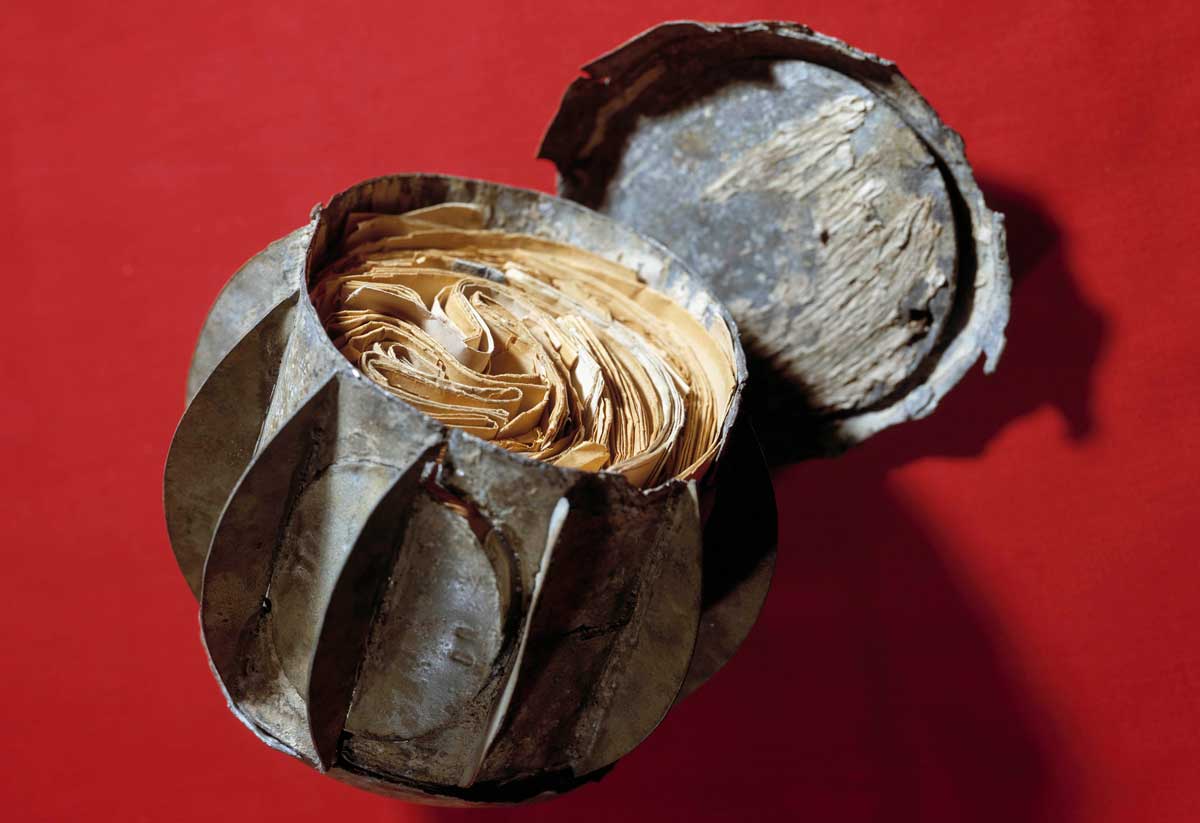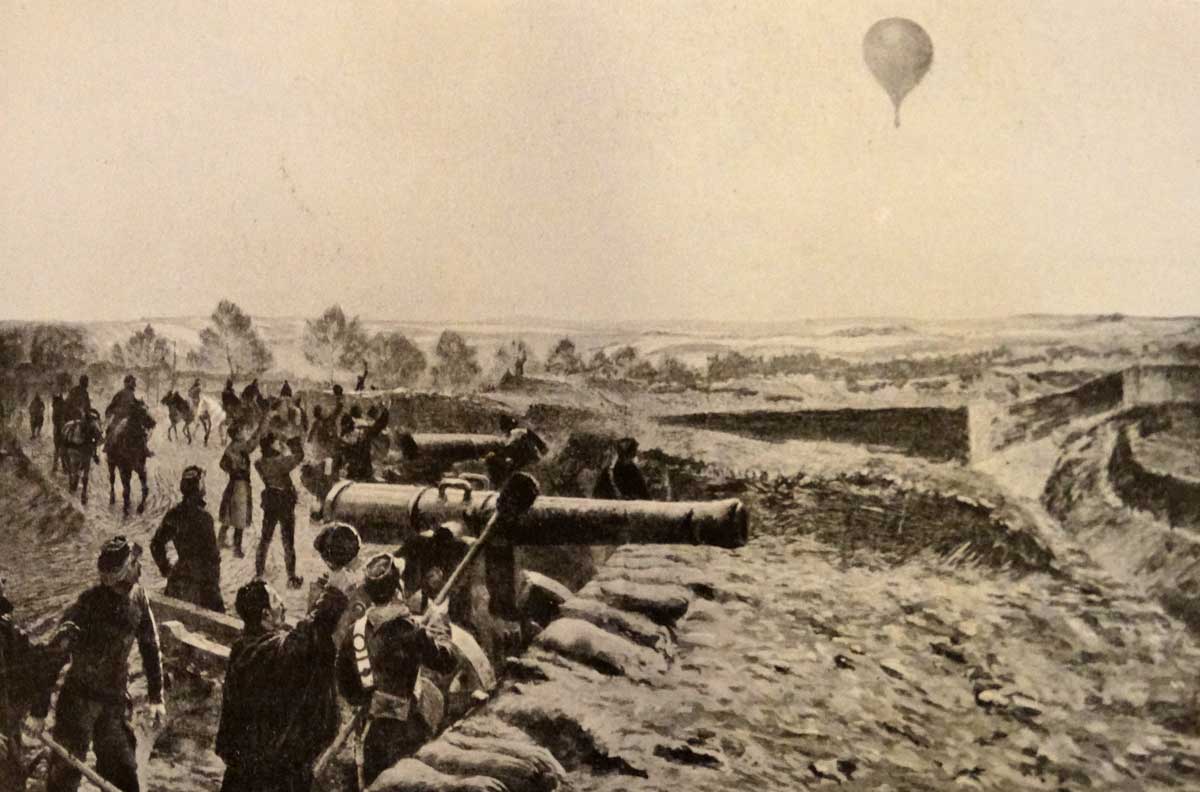A Worthy Cause? | History Today - 11 minutes read

At the outbreak of the Franco-Prussian War in 1870 Mr Frederick Gonner Worth was a junior business partner in the wine merchants Messrs. Delattre and Worth. Based in Canon Street, he was responsible for the London side of the business, while his associate, Monsieur Delattre, the senior partner, was based in Paris. The outbreak of the war on 19 July initially had little impact on their import and export business, but shortly before the Prussian General Helmuth von Moltke ordered the siege of Paris on 15 September, in which the city was surrounded by Prussian forces to prevent escape, Delattre was ordered to report to the French National Guard for service in the conflict. Consequently, Worth was forced to move to Paris and manage the business from there.
Worth remained in Paris for a couple of months, ensuring the security of extensive stock at the firm’s premises. With this achieved, he applied for permission to cross the Prussian lines and leave the city. His application was reportedly refused, despite a similar request by a party of British nationals subsequently being granted. In desperation he paid £100 to a daring aeronaut to join an attempted escape by hot air balloon, a debacle which ended in his imprisonment by the Prussians on suspicion of spying on 27 October.
Down to earth
Following his arrest, the Foreign Office was inundated with requests to secure the release of the unfortunate young Englishman, particularly as Britain had decided to remain neutral in what the government considered to be a central European war, while attempting to maintain positive diplomatic relations with both France and Prussia. Nevertheless, Britain offered passive assistance to the French through the sale of weapons, while providing medical aid to both sides with the deployment of large numbers of nurses and ambulances of the newly founded Red Cross.
A contemporary dossier contains details of 104 items of correspondence between Earl Granville, Secretary of State for Foreign Affairs, Foreign Office officials and those asking that the government intervene on Worth’s behalf. Some of the most fervent requests were made by a fellow London wine merchant, Henry Littlewood, who wrote to Granville on 8 November to inform him that Worth held a British passport and to argue that his attempted escape by balloon was an entirely justifiable course of action, following the Prussians’ refusal to allow him to leave Paris. Littlewood, now acting as Worth’s appointed representative, wrote to both the Foreign Office and the press protesting the innocence of his colleague and beseeching the government and British public to do everything in their power to secure his release.
Granville began to make enquiries and soon received a report from Colonel Beauchamp Walker, of the British Embassy in Berlin, who had been allowed to visit Worth in captivity at Versailles. Walker concluded that Worth was an unfortunate victim of circumstance and explained that he would be sent to Prussia as a prisoner of war along with anyone who attempted to leave Paris unauthorised. Nevertheless, Walker reported that he had managed to procure for him ‘some warm clothing, a second pair of boots, and a change or two of linen’ in readiness for his departure and agreed to post a letter Worth had written to his mother, which was subsequently reprinted in The Times, explaining his ordeal:
On Thursday, October 27, I left Paris by balloon in company with three others. We left with a north-west wind, which would have carried us into Belgium, but the wind changing to direct east, we were carried onto the Prussian lines. We left Paris at two o’clock in the afternoon, and as at half-past four it was almost dark, we were obliged to come down to earth.
Just as we emerged from the clouds, at about 250 yards from the ground, we were welcomed by a shower of Prussian bullets, some of which pierced the balloon, and in order to avoid being hit we were obliged to come down at a tremendous pace. When we touched the ground there was of course a terrible shock. I fortunately did not lose my presence of mind, and held on by the cords, so that I did not feel it so much in jumping from the balloon. However, I was thrown some thirty feet into the air and fell all of a heap without being hurt in the least.
Upon waving a handkerchief of surrender, the Prussians ceased firing and took him prisoner just outside Verdun, from where he was taken to Versailles, to await transportation to Germany.
I spy
It is not surprising that the Prussian troops reacted with hostility. The hot air balloon was a French invention pioneered by the Montgolfier Brothers in 1793, but it was soon adapted for military purposes. Balloons were first used as a method of observing enemy movements at the Battle of Fleurus in 1794. During the Prussian siege of Paris, the French used balloons to send communications and gather military intelligence.
On 12 November Earl Granville wrote to Lord Augustus Loftus, British Ambassador to the North German Federation, stating that the British government believed Worth should be allowed the liberty of a non-combatant. Loftus made inquiries into the grounds on which a British subject descending in a balloon could be subjected to Prussian detention and argued that ‘escape by balloon was an incident of so novel a character that it was quite beyond the existing provisions of the laws of war’. However, he also privately confessed to Granville that he could not understand why Worth had not simply left with the other English nationals instead of attempting such an extraordinary escape.

Despite numerous attempts at interventions, Worth left Versailles on the morning of 14 November 1870 on foot with other prisoners of war bound for Cologne. Walker had been allowed to see him and advanced him 100 francs, but also reported for the first time that General von Blumenthal, Chief of Staff of the III Prussian Army, believed Worth to be a French spy. There followed confused accounts in the British press and it was reported by The Times’ Versailles correspondent on 14 November that the Prussian authorities had offered to release Worth on a guarantee from Walker, which had been refused. The correspondent wrote:
How can a man be a spy who had no animus revertendi, and no means of communicating knowledge, and no military acquirements, and no national object? I am assured that any application at headquarters on behalf of the British Government would at once have secured his release on parole.
Walker wrote to London on 19 November stating that The Times reportage was entirely untrue. No such offer had been made.
On learning of Worth’s departure from Versailles, Littlewood travelled to the Continent and sent a telegraph to Granville from the Victoria Hotel in Cologne on 21 November stating that nobody knew of the prisoner’s whereabouts. Worth arrived in Cologne on 25 November and Littlewood sent an urgent telegram to London requesting representation by the government. Loftus applied for permission to enable Littlewood to see Worth and the case was even forwarded from the Prussian Ministry of War to Otto von Bismarck, but an audience was refused and Littlewood dejectedly retired to England in early December. However, he did not return without first obtaining a letter from Worth, written on 29 November, which explained his decision to try to escape Paris by balloon:
Had I known before I engaged my place in a balloon that the foreigners would have to leave Paris, I should, of course, have left with Mr Wodehouse, of the British Embassy who left some few days after I did. I made several inquiries, but I was informed that if foreigners were in a besieged city so much worse for them. They could not get out; and as my family reasons, as you know, were sufficiently pressing to get away I tried a balloon trip.
The ‘family reasons’ to which Worth alluded concerned the poor health of his mother.
Consequences
Despite his confinement awaiting court martial, it was reported that Worth was housed in an officer’s room at the military prison and was free to write letters, as well as procuring whatever provisions he wished. He himself praised his treatment. However, the British press continued to portray his imprisonment as an injustice, invariably fuelled by correspondence from Littlewood. On 31 December, The Standard printed an article entitled ‘Prussian Treatment of Englishmen’, which explained that Worth was still confined in prison and that, ‘as his friends thought he might possibly be detained over Christmas they sent him a case containing a little wine and Christmas cheer’, but the governor of Cologne had refused to allow him to have it.

What remained true, however, was that there were no details of the charges to be brought against Worth, despite a flurry of diplomatic requests prior to the court martial that began on 18 January 1871. Even following the trial, a sentence was not pronounced and the court referred the case to higher authorities in Versailles. The indecision surrounded the contents of a letter, purportedly written by Worth to Littlewood before his flight from Paris on 27 October, which contained an order to purchase weapons on behalf of the French government, which had been intercepted by the Prussians. The chief plea raised by Herr Fischer, assigned as defending counsel, was that Worth had endeavoured to retrieve the letter soon after writing it, but it had already been sent via balloon post.
If true, this may explain why he had attempted to risk escape in a balloon and the desperate attempts by Littlewood to secure his release before trial, but it would appear unlikely that he was trying to smuggle arms into Paris when the British government were already fulfilling an official contract.
In Britain questions had begun to be asked about the continued use of government resources to secure the release of the prisoner. The Law Journal wrote an open letter to The Times, printed on 11 February 1871, plainly stating the legal definition of Worth’s predicament. It concluded that, although the government’s applications to the Prussians on behalf of a British subject were indeed honourable, they were neither responsible nor in a position to legally influence the court martial proceedings. In essence they argued that Worth had made a conscious decision to remain in a country at war and a city that was about to be besieged despite having been given adequate notice to depart. Consequently, the British government had no right to demand his surrender and they reminded readers that:
A British subject does not carry the laws of his country about with him. He is under the law of the country in which he resides. If he is in a besieged city, and still more if he deliberately remains in a city that is about to be besieged, he is under the laws of war, and has no right to complain if he is arrested when endeavouring to escape. The British Government cannot protect British subjects against the consequences of their own actions.
A deflating end
If Worth was guilty of an offence, it was being in breach of the Proclamation of Neutrality issued by the queen at the outset of the war. Indeed, if the letter had been found on Worth’s person, the laws of war would have permitted him to have been executed forthwith.
Regardless of the severity of the charges, the case was ultimately treated with extreme leniency; Worth was acquitted by the military court at Cologne on 16 February 1871 and released four days later. Upon his return to London he sought an audience with Earl Granville on 16 March, in which he pleaded his case for compensation from the Prussian authorities on account of his physical health and business being completely ruined during his incarceration. Worth stated that he had suffered fever and diphtheria during his confinement at Versailles, which had been exacerbated during the enforced march to Cologne. Granville decided that the Foreign Office was unable to place such a claim. On 8 April Littlewood wrote for the final time on Worth’s behalf, acknowledging the Foreign Office’s decision to not pursue compensation. An extraordinary episode in British diplomacy was concluded.
It remains unclear whether Worth wrote the letter that incriminated him. He died on 10 July 1904, leaving a wife and a son and effects of £159. 16s. 7d. There is no evidence that he continued in the wine trade following his return to England.
Tim Jenkins is an aviation historian.
Source: History Today Feed